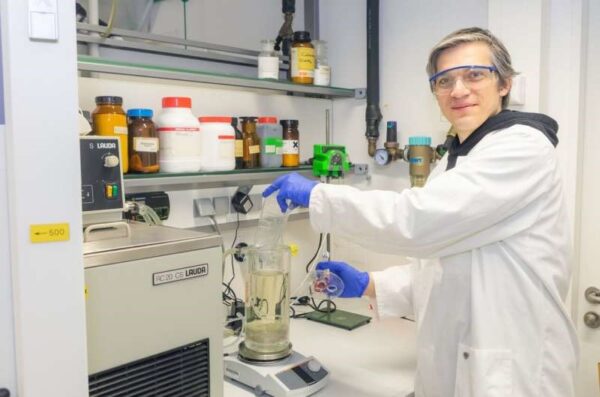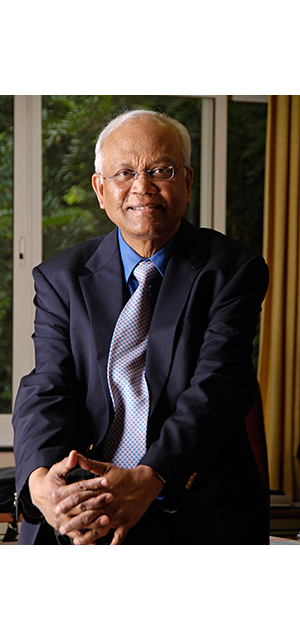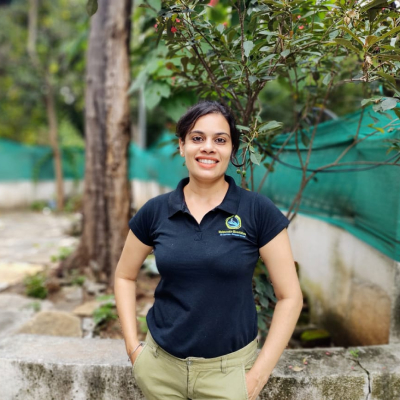Dr. Aparna Deshpande
The rapidly increasing production of disposable plastic products overwhelms the world’s ability to deal with them. Plastic pollution is most visible in developing Asian and African nations along with the developed world countries with low recycling rates. A team of researchers at Leipzig University have now discovered a highly efficient enzyme that degrades PET in record time. They came across an enzyme PHL7 in a compost heap. It has come up as an effective biological solution for PET degradation. As per the findings published in the scientific journal ChemSusChem also the cover topic of the edition this is the most sustainable solution till date for plastic remediation. Enzymes are used by bacteria to decompose plant parts in nature. Polyester-cleaving hydrolases is a class of enzyme known for plastic degradation from quiet sometime. The enzyme LCC, discovered in Japan in 2012-13, is considered to be a predominantly effective “plastic feeder.” The team headed by Dr. Christian Sonnendecker, an early r from Leipzig University, was looking for previously undiscovered examples of these class of enzymes as part of the EU-funded projects MIPLACE and ENZYCLE. They got the answer they were looking for in a compost heap from a cemetery in Leipzig. The researchers came across the blueprint of an enzyme that decomposed PET at record speed in the laboratory.
In the performed experiments, the researchers added PET to a container with an aqueous solution containing either PHL7 or LCC, the pioneer in PET decomposition. Then they measured the amount of plastic that was degraded in a given period of time was measured the values were compared with each other. In 16 hours, PHL7 caused the PET to decompose by 90 percent while, LCC managed a degradation of just 45 percent. PHL7 enzyme is twice as active as the gold standard among polyester-cleaving hydrolase explains Dr. Sonnendecker. To be more specific in analytical performance PHL7 broke down a plastic punnet—the kind used for selling grapes in supermarkets in less than 24 hours. The researchers explains that a single building block in the enzyme is responsible for this above-average activity. At the site where other previously known polyester-cleaving hydrolases contain a phenylalanine residue, PHL7 carries a leucine.
The conventional recycling methods rely mostly on thermal processes where the plastic waste is incinerated at high temperatures. Enzymes, on the other hand require an aqueous environment and a temperature of 65 to 70 degrees Celsius. An added advantage of enzymes is they break down the PET into its components terephthalic acid and ethylene glycol, which can be reused to produce new PET resulting in a controlled closed cycle. So far biological PET recycling has only been tried and tested in France. The researchers at Leipzig hope that the newly discovered enzyme PHL7 can advance biological recycling in practice and are looking for developing this technology at industrial scale. They are confident that the higher speed will significantly reduce recycling costs. Over the next couple of years, they aim to create a model that will make it possible to quantify the economic benefits of their rapid biological recycling process more precisely. The scientists at the Institute also want to elucidate the structure and function of the enzymes using NMR spectroscopy. They are also working on a new pre-treatment method to solve the main problem statement i.e the more crystalline plastic. Biological recycling: PET decomposition by enzymes has successfully worked on amorphous PET is used in things like fruit packaging. Studies are in progress for the more crystalline plastics like PET bottles and food storage containers.
Please see the following news Source(s) and original reference(s) therein: https://phys.org/news/2022-05-enzyme-pet-plastic.html





